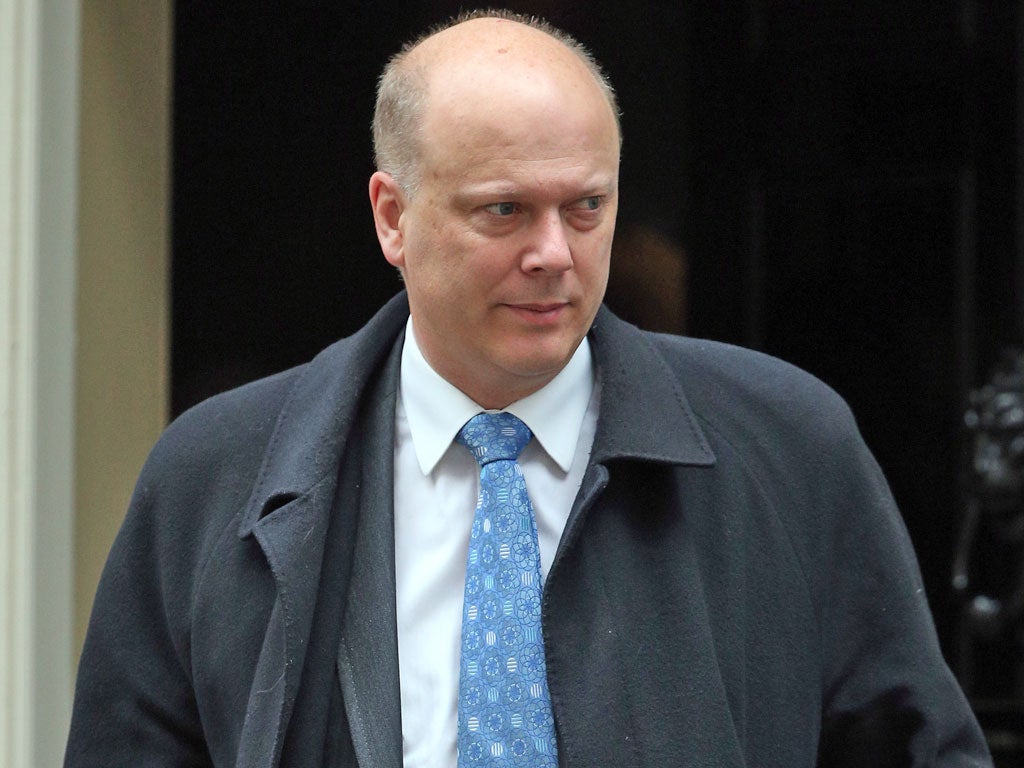Justice Secretary Chris Grayling wants criminals to pay towards cost of their trials

Criminals should be made to contribute towards the cost of their own prosecution, Justice Secretary Chris Grayling will say today.
With almost 1.5 million defendants passing through the system every year, the cost of criminal trials is expected to reach £665.5m this financial year. Today Mr Grayling will announce plans being developed by the Ministry of Justice to deduct the cost of court proceedings from a criminal’s future earnings.
“Why should the law-abiding, hard-working majority pay for a court service for the minority who break the law?” the Justice Secretary will say. “Those who live outside the law should pay the consequences, both through being punished and bearing more of the costs they impose on society. That is why we are exploring ways to make criminals pay towards the cost of their prosecution to the court.”
In the 12 months to September last year, 1.47 million defendants went through magistrates’ courts while 114,00 were tried at Crown Court. Offenders can already be required to make payments to victims, the courts or other Government agencies through a range of compensation orders and fines but there is currently no power to make them pay directly towards the running cost of the courts.
The announcement comes as Mr Grayling was expected to outline new, wide-ranging proposals to tackle soaring criminal legal aid bills and make the system more efficient. “With criminal legal aid costing tax-payers £1bn a year, the consultation will propose measures to ensure the best value for taxpayers’ hard-earned money and tackling instances where people have been taking the system – and those who pay for it – for a ride,” a Ministry of Justice spokesman said.
The proposals are all part of drastic cuts aimed at reducing the country’s legal bill. When the Legal Aid, Sentencing and Punishment of Offenders Act (LAPSO) came into force at the beginning of this month, the number of people qualifying for funding was cut by 75 per cent. As many as 200,000 individuals a year – in civil cases dealing with issues such as family, personal injury, employment and immigration – will be affected.
Subscribe to Independent Premium to bookmark this article
Want to bookmark your favourite articles and stories to read or reference later? Start your Independent Premium subscription today.

Join our commenting forum
Join thought-provoking conversations, follow other Independent readers and see their replies